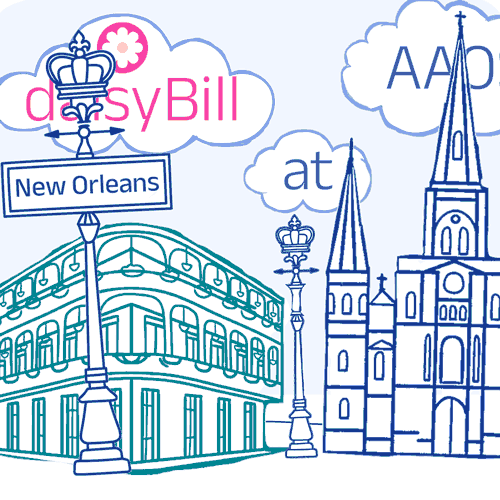More States Move to Expand Workers' Comp PTSD Coverage

Across the US, lawmakers are reconsidering their approach to mental health coverage under their workers’ compensation systems, particularly for first responders.
Bills in the Connecticut, Wisconsin, Montana, Kentucky, and Oklahoma legislatures aim to expand workers’ ability to file work-related mental health claims, and providers should be ready.
If these state measures pass, they will likely drive more injured workers into treatment, increasing the demand for providers who are eligible to deliver mental health services to injured workers.
Below, see a bill-by-bill breakdown of the potential changes in motion.
Connecticut: PTSI for Injury Witnesses
Bill: House Bill 6954
What the bill does: As daisyNews reported, HB 6954 bill adds coverage for workers with a Post-Traumatic Stress Injury (PTSI) resulting from witnessing any serious physical injury. Current statutes limit coverage to witnessing injuries that lead to the victim’s death or disfigurement.
Status: HB 6954 is out of committee and on the legislature’s calendar.
Provider impact: More workers may qualify for PTSI claims. Providers may want to familiarize themselves with what defines a “serious injury” in the context of workers’ comp and how to navigate Connecticut’s authorization processes for PTSI.
Wisconsin: Extending Benefits Beyond Police & Firefighters
Bill: Senate Bill 168
What the bill does: This bill would extend the Post-Traumatic Stress Disorder (PTSD) coverage that Wisconsin firefighters and law enforcement receive to:
- Emergency Medical Technicians and Emergency Medical Services practitioners
- Volunteer firefighters
- Correctional officers
- Dispatchers
- Coroners and medical examiner staff
Specifically, the workers above would no longer have to demonstrate that their PTSD stems from “unusual stress of greater dimensions than the day-to-day emotional strain and tension experienced by all employees.”
Status: State Senators referred the bill to the Committee on Insurance, Housing, Rural Issues, and Forestry.
Provider impact: Practices may see an influx of non-firefighter, non-police frontline workers, expanding the pool of patients eligible for workers' comp treatment. Injured workers may also come in from rural and volunteer fire departments.
Montana: Instituting PTSD Coverage
Bill: Senate Bill 394
What the bill does:
For the first time in Montana, this bill offers first responders workers’ comp coverage for PTSD. Advocates frame the move as both fiscally responsible and a tool to normalize seeking mental health services and aid in suicide prevention.
Status: SB 394 passed the state Senate and one House committee.
Provider impact: The possible influx of patients may be significant. Unlike other state measures that aim to expand existing Post-Traumatic Stress coverage, this bill would institute such care for first responders for the first time.
Kentucky: No Physical Injury Required
Bill: House Bill 420
What the bill does: Current Kentucky statutes only recognize PTSD as a compensable injury for first responders when it accompanies physical harm. This bill would make PTSD a stand-alone work-related injury with a presumption of compensability if the provider diagnoses PTSD within 3 years of the worker’s last day of active duty.
Status: Legislators sent HB 420 to the Economic Development & Workforce Investment Committee.
Provider impact: With this bill, workers will not need to seek treatment for a physical injury as a prerequisite for mental health care. Plus, the burden shifts to employers to prove the PTSD isn’t job-related. Mental health providers may see more injured workers and play a newly central role in qualifying claims.
Oklahoma: New Procedures For First Responders in Treatment
Bill: House Bill 1842
What the bill does: This measure enhances PTSD coverage for first responders and adds requirements to collect the weapons of armed first responders and suspend their certification until the provider clears their return to work.
Status: Legislators referred HB 1842 to the House Rules Committee.
Provider impact: Law enforcement PTSD cases will trigger administrative procedures in addition to care. Practices must coordinate with employers to meet treatment and clearance requirements.
What Providers Can Do Now
- Brush up on each state’s evolving PTSD criteria.
- Train billing staff on mental health authorization and documentation for workers’ comp.
- Update intake procedures to identify and distinguish work-related injuries, particularly those requiring mental health services.
Even if the state you practice in is not on this list, pay attention. Any bill that significantly reshapes assumptions and legal precedent around workers’ comp compensability can have ripple effects.
daisyNews will keep following these stories as they develop and keep our readers up to date in this space.
Nationwide, daisyBill takes the admin hassle out of treating injured workers. Click below to see how smooth billing can be.
BILL BETTER
DaisyBill provides content as an insightful service to its readers and clients. It does not offer legal advice and cannot guarantee the accuracy or suitability of its content for a particular purpose.






